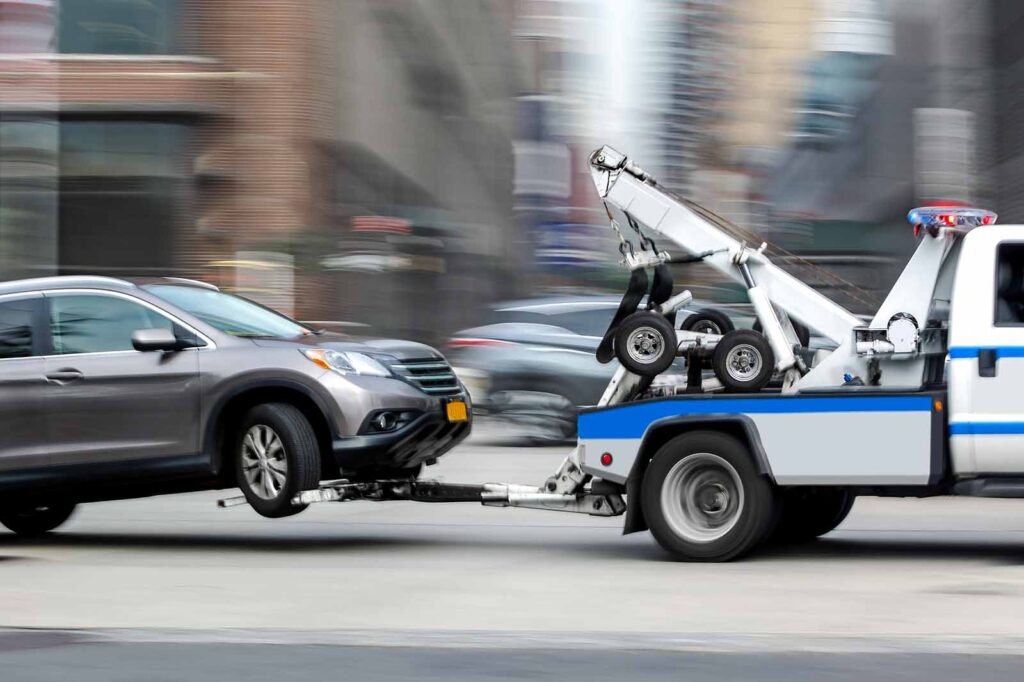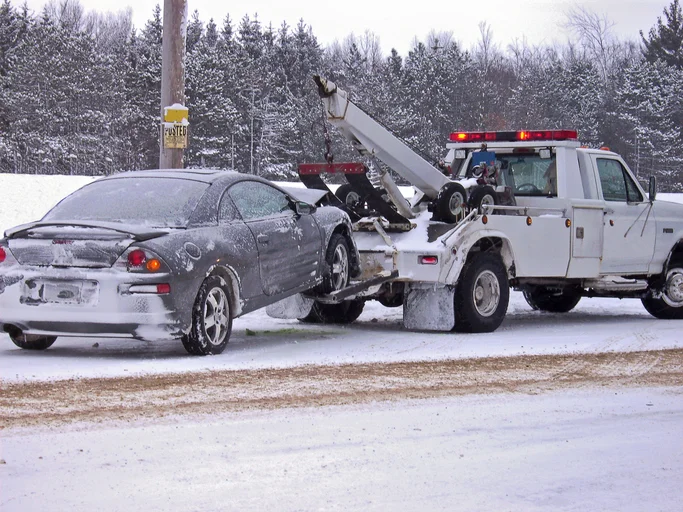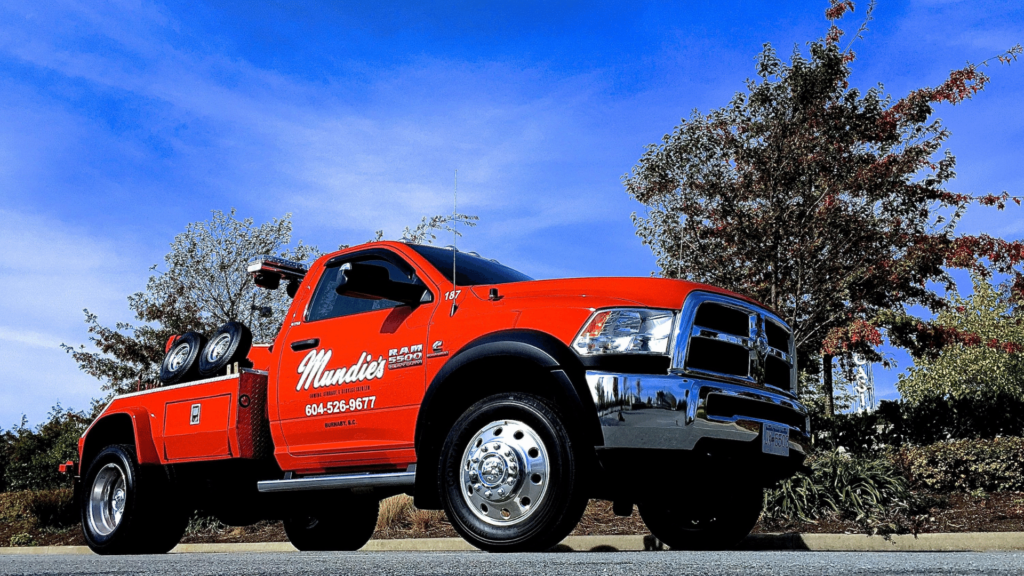Towing work encompasses a range of essential services that involve the transportation of vehicles. From roadside assistance to long-haul transportation, the act of towing entails the careful handling and relocation of cars, motorcycles, trucks, and even boats. The tasks involved in towing work can vary greatly, including rescuing stranded motorists, recovering accident-damaged vehicles, and facilitating vehicle relocations. Whether you find yourself in need of emergency assistance or require the transportation of a large vehicular asset, understanding the intricacies of towing work is crucial.
What is Towing?
Towing refers to the process of pulling or hauling a vehicle or any other heavy object using another vehicle or equipment specifically designed for this purpose. Towing is commonly needed in various situations such as when a car breaks down, gets involved in an accident, or needs to be transported from one location to another. Towing services play a crucial role in assisting drivers in distress and ensuring the safe and efficient movement of vehicles.
Types of Towing
Flatbed Towing
Flatbed towing is one of the most popular and widely used methods of towing vehicles. It involves using a specialized flatbed truck equipped with a flat platform at the rear to transport the entire vehicle. This method is preferred for its ease of loading and unloading, as well as its ability to safely transport vehicles without causing any further damage.
Wheel Lift Towing
Wheel lift towing involves lifting the front or rear wheels of a vehicle using a hydraulic lift fitted beneath the towing vehicle. This method is commonly used for lighter vehicles and allows for quick and efficient towing. It is often used in situations where flatbed towing may not be necessary or feasible, such as short distance towing or in tight parking spaces.
Hook and Chain Towing
Hook and chain towing, also known as sling towing, is a traditional method that involves the use of chains and hooks to secure the vehicle being towed. This method is less commonly used today due to the potential for damage to the towed vehicle. It is typically reserved for heavy-duty towing of large vehicles or in situations where other methods may not be suitable.

This image is property of www.mach1services.com.
Towing Vehicles
Cars
Towing services are frequently required for cars that experience mechanical failures, accidents, or need to be transported over long distances. Towing companies have the necessary equipment and expertise to securely tow cars of all sizes, ensuring their safe relocation.
Motorcycles
Motorcycles often require specialized towing services due to their unique design and handling characteristics. Towing companies equipped with motorcycle-specific towing equipment can safely transport motorcycles without causing any damage to the delicate components.
Light Trucks
Light trucks, including pickup trucks and SUVs, are commonly towed in various scenarios such as accidents, breakdowns, or when they are illegally parked. Towing companies with appropriate equipment can effectively tow light trucks without causing any additional damage.
RVs
Recreational vehicles (RVs) require specialized towing services due to their large size and specific towing requirements. Towing companies equipped with heavy-duty tow trucks and experienced personnel can safely tow RVs to designated locations or repair facilities.
Boats
Boat towing involves the transportation of boats from one location to another, such as from a storage facility to a marina or vice versa. Specialty towing companies offer boat towing services using specialized trailers or flatbeds designed to accommodate different types and sizes of boats.
Trailers
Towing services are often required for various types of trailers, including utility trailers, camping trailers, and horse trailers. Towing companies can provide the necessary equipment and expertise to safely tow trailers to their intended destinations.
Towing Equipment
Tow Straps
Tow straps are heavy-duty nylon or polyester straps designed to securely attach a disabled vehicle to a towing vehicle. They are commonly used for quick and temporary towing, especially in off-road situations or when a vehicle needs to be towed short distances.
Chains
Chains are widely used in hook and chain towing or when additional security is required to tow heavy vehicles. They provide strength and durability, allowing for the safe and secure towing of larger vehicles.
Winches
Winches are mechanical devices specifically designed to pull or hoist heavy objects. They are commonly used in off-road recovery situations or when a vehicle is stuck and needs to be pulled out of a difficult spot.
Tow Dollies
Tow dollies are specialized trailers that allow two wheels of a vehicle to be elevated while the other two remain on the ground. They are commonly used for front-wheel-drive or rear-wheel-drive vehicles that cannot be towed using a flatbed or wheel lift method.
Brake Controllers
Brake controllers are electronic devices installed in towing vehicles to synchronize the braking system of the towed vehicle. They ensure that the brakes on the towed vehicle are properly engaged when the towing vehicle applies its brakes, enhancing safety and control during the towing process.

This image is property of www.hollywoodtowing.com.
Factors Influencing Towing Capacity
Vehicle Weight
The weight of the towing vehicle, as well as the weight of the vehicle being towed, plays a significant role in determining towing capacity. The towing capacity should not be exceeded to prevent strain on the towing vehicle’s engine, transmission, and suspension.
Engine Power
The horsepower and torque of the towing vehicle’s engine affect its ability to tow heavy loads. A more powerful engine can handle heavier towing loads with greater ease and efficiency.
Braking Ability
The braking ability of the towing vehicle is crucial in ensuring safe towing. The towing vehicle’s brakes should be capable of effectively stopping both the towing vehicle and the towed vehicle.
Suspension
The suspension of the towing vehicle determines its ability to handle the weight and movement of the towed vehicle. A well-designed and properly functioning suspension system helps maintain stability and control during towing.
Transmission
The transmission of the towing vehicle should be suited to handle the additional load of towing. Automatic transmissions with towing modes or manual transmissions offer better control and power delivery when towing.
Cooling System
Towing puts additional strain on the towing vehicle’s engine, causing it to generate more heat. A robust cooling system is essential to prevent overheating and maintain optimal engine performance during towing.
Towing Laws and Regulations
Local Restrictions
Different regions may have specific towing regulations and restrictions. It is important to be aware of and comply with local laws regarding towing, including restrictions on towing in certain areas or during specific times.
Speed Limits
Speed limits for vehicles being towed may be different from regular driving speeds. It is important to adhere to the designated speed limits while towing to ensure safety and comply with traffic regulations.
Weight Limits
There are weight limits imposed on towing vehicles to ensure their safe operation. It is important to understand and adhere to these weight limits to prevent unnecessary strain on the towing vehicle and to comply with legal requirements.
Permits and Licenses
Certain towing scenarios may require special permits or licenses, such as when towing oversized or overweight vehicles. Towing companies must ensure they have the necessary permits and licenses to legally operate within the specified jurisdictions.
Trailer Lighting Requirements
Trailers being towed are required to have proper lighting, including brake lights, turn signals, and reflectors. Compliance with trailer lighting requirements is essential for the safety of both the towing vehicle and other drivers on the road.

This image is property of www.ziprecruiter.com.
Towing Safety Tips
Proper Loading and Securing
When towing, it is important to properly load and secure the towed vehicle or cargo to prevent shifting or damage during transportation. Following manufacturer guidelines and using appropriate tie-down straps or chains is crucial for safe towing.
Balancing Weight
Weight distribution is vital for safe towing. Properly distributing the weight between the towed vehicle and the towing vehicle helps maintain stability and control during towing. Consult the towing vehicle and towed vehicle’s manuals for guidelines on weight distribution.
Inspecting Towing Equipment
Regularly inspecting and maintaining towing equipment is essential for safe towing operations. This includes checking the condition of straps, chains, trailer hitches, and other towing components to ensure their integrity and functionality.
Driving Techniques
Driving techniques should be adjusted when towing to accommodate the extra weight and length of the towed vehicle. This includes maintaining a safe following distance, using appropriate turning techniques, and adjusting driving speed to ensure safe maneuverability.
Braking and Acceleration
Braking and acceleration should be done gradually and smoothly when towing. Abrupt movements can cause instability, especially when towing heavy loads. It is important to allow for increased braking distance and to anticipate acceleration needs.
Choosing a Towing Service
Reputation and Experience
When selecting a towing service, consider their reputation and level of experience. Look for companies with positive customer reviews and a track record of providing reliable and efficient towing services.
Services Offered
Different towing companies may offer different services, so it is important to choose one that meets your specific needs. Consider whether they provide services such as roadside assistance, tire changes, or lockout assistance in addition to towing.
Availability
24/7 availability is important when selecting a towing service. Emergencies can happen at any time, so choosing a company that operates round the clock ensures you can get the assistance you need, whenever you need it.
Pricing
Compare pricing among different towing companies to ensure you are getting a fair and competitive rate. However, keep in mind that cheaper does not always mean better, and it is important to balance cost with the quality of service.
Insurance Coverage
Verify that the towing service has appropriate insurance coverage to protect against any potential damage or liabilities during the towing process. This ensures peace of mind and minimizes the risk of any financial burdens.

This image is property of cdn11.bigcommerce.com.
Common Towing Scenarios
Flat Tire
A common towing scenario is when a vehicle experiences a flat tire and requires towing to a nearby tire repair shop or a safe location. Towing services can assist in safely transporting the vehicle without further damaging the rim or tire.
Engine Failure
In the event of an engine failure that renders the vehicle inoperable, a towing service can safely transport the vehicle to a repair facility. This prevents further damage to the engine and facilitates the necessary repairs.
Car Accidents
When involved in a car accident, towing services are often needed to safely remove the damaged vehicle from the accident scene. Towing companies can coordinate with insurance providers and towing the vehicle to a designated repair shop or storage facility.
Off-Road Recovery
Off-road recovery involves towing a vehicle that has become stuck or immobilized in a non-paved or difficult terrain. Towing companies equipped with specialized equipment and experienced operators can safely recover vehicles from challenging off-road situations.
Towing Assistance Programs
AAA
AAA (American Automobile Association) is a well-known provider of towing assistance programs. AAA members have access to a wide range of benefits, including towing services, roadside assistance, and other automotive-related services.
Roadside Assistance Plans
Various insurance providers and automobile clubs offer roadside assistance plans that include towing services. These plans often provide coverage for a specific number of towing miles per year, along with other roadside benefits.
Manufacturer Programs
Some vehicle manufacturers offer their own towing assistance programs for their customers. These programs often include towing coverage for a specified period or mileage after the purchase of a new vehicle.
In conclusion, towing is a crucial service that assists drivers in various scenarios, from vehicle breakdowns to accidents and transportation needs. Understanding the different types of towing, towing vehicles, equipment, and factors influencing towing capacity is essential for both drivers and towing service providers. Additionally, awareness of towing laws and regulations, adherence to towing safety tips, and making informed choices when selecting a towing service or assistance program contribute to a safe and efficient towing experience.

This image is property of www.mundiestowing.com.
